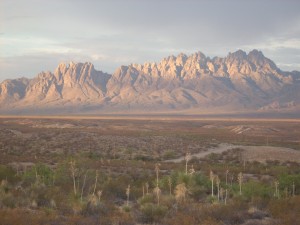This might be my favorite of all the Sam Harris talks I’ve seen to this point. It takes some moxie to ask a group of 4000 atheists to close their eyes and practice mindfulness meditation for ten minutes. Harris was speaking at the 2012 Global Atheist Convention in Melbourne, Australia. The title of this talk is “Death and the Present Moment,” and in it Harris attempts to answer the following question (among others): “What does atheism have to offer in the face of death?” Below is a mishmash of quotes and paraphrasing:
Atheism is just a way of clearing the space for better conversations. The challenge is to get people to engage in these conversations, given the seemingly irreconcilable differences between believers and non-believers.
What people are really worried about is death. When we’re arguing about teaching evolution in schools, we’re really arguing about death. The only reason for a religious person to care about evolution is because they know that if their holy books are wrong about our origins, then they’re very likely wrong about our destiny after death. So when you say to someone that “you are a fool for not believing in evolution” or “you are a fool to think the universe is 6000 years old,” I think that gets translated as “You are a fool to think that your daughter who died in a car accident is really in heaven with God” — and that is a very different communication.
[Note from Bob: A Gallop Poll just released on June 1st found that: “Forty-six percent of Americans believe in the creationist view that God created humans in their present form at one time within the last 10,000 years.”]
How can people make sense of tragedy? Religion provides an answer — not a good one, but an answer that most people think they need. Belief in God is very consoling in the face of tragedy and death. Atheism doesn’t offer real consolation on this point.
Holidays, architecture, music, humility, awe, profundity — this is not what we necessarily lose when we jettison religion. All of that can be had within the purview of reason, and it can be had without lying to ourselves–or to our children, or other people and their children–about the nature of reality. The thing that gets lost, for which there is no real substitute, is total consolation in the face of death. If we want to build a bridge to a rational world that the better part of humanity can cross, then we have to deal with this fact.
People who face death are often struck with the realization or regret that when life was normal, their attention was too often bound up in petty concerns. There will come a day, for all of us, when we will look back at the kinds of things that captured our attention and think, “What was I doing?” We tend to live tacitly as if we will live forever, wasting time on things we don’t really care about. People who don’t believe in an afterlife have a particularly compelling reason to make the most of the present moment.
So what is the point of life? Is anything sacred? Do such questions even make sense? These questions do make sense and there are answers to them, but the answers are not about getting more information. The answer is a change in attitude. There are ways of experiencing life as sacred without believing anything, and certainly without believing anything on insufficient evidence. There are ways to really live in the present moment.
As a matter of conscious experience, the reality of your life is always now. I think this a liberating truth about the nature of the human mind, in fact I think there is probably nothing more important to understand about your mind than that, if you want to be happy in this world.
You must know that I don’t want to stand in front of 4000 atheists and do my best impression of Lao Tzu :0)
This is not a matter of new information or more information. It requires a change in attitude, in the attentiveness you pay to your experience in the present moment.
How can we be truly fulfilled in life, given that our lives come to an end?
There are techniques available to deeply explore the present moment: I want to try a little experiment with you. Please close your eyes… [Sam then leads the group through a mindfulness meditation exercise, at about the 29:32 mark.]
We are all trying to find a path back to the present moment and a good enough reason to just be happy here. The practice of meditation I just showed you (mindfulness meditation) is just a trick for doing that, a trick for setting aside your to-do list (if only for a few moments) and actually locating a feeling of fulfillment in the present.
The conversation we have with ourselves every minute of the day comes with a cost. Discursive thought can be useful, but it is also the mechanism by which most of our suffering is inflicted — the sorrow, the self-doubt, the anxiety, the fear. And yes, the fear of death. Thinking is useful, but being perpetually lost in thought isn’t. Being the mere hostage of the next thought that comes careening into consciousness, isn’t useful. If there’s an antidote to the fear of death and the experience of loss, that’s compatible with reason, I think it’s to be found here.
The purpose of life is pretty obvious, beyond mere survival. We invest so much in culture and relationships because we are constantly trying to create and repair a world that our minds want to be in. Religion is not a good way to do this, and so we have to start a new conversation.


